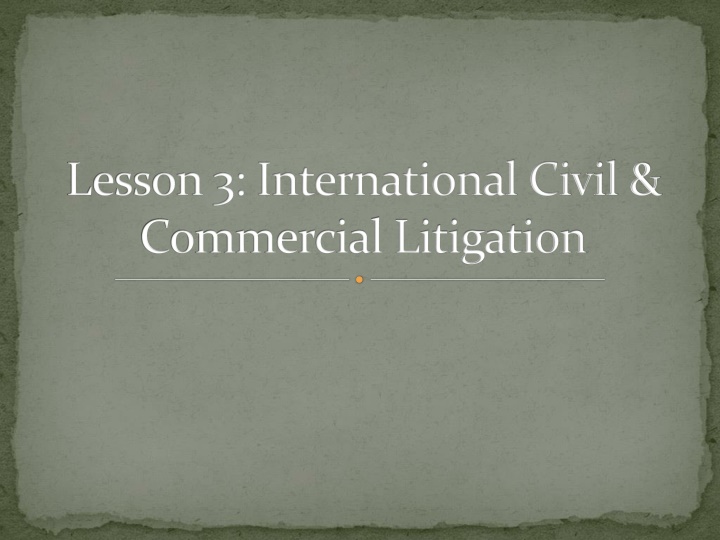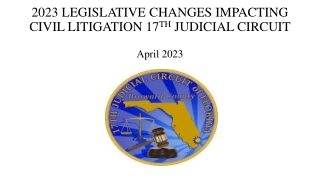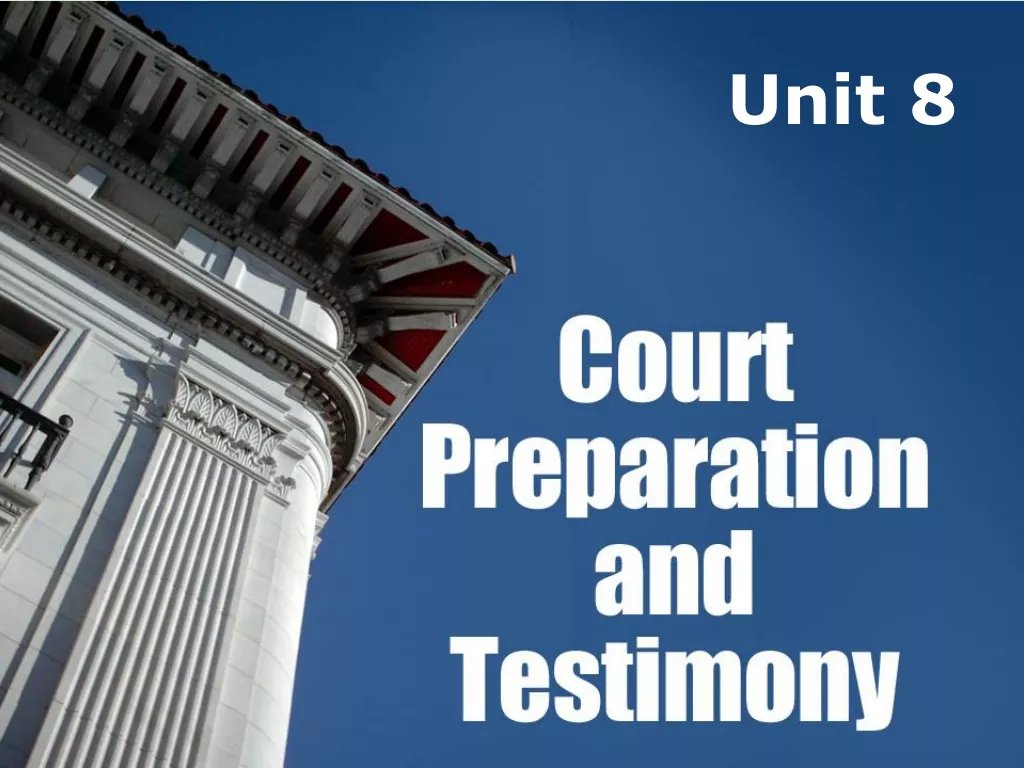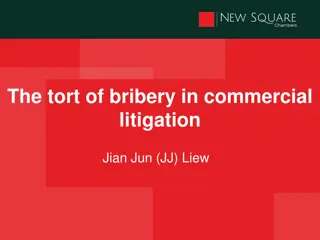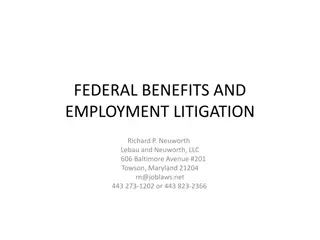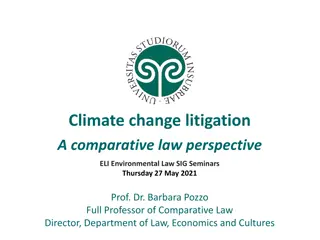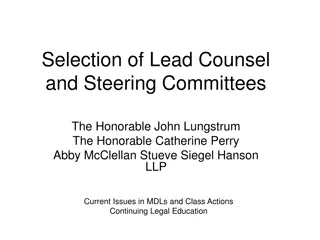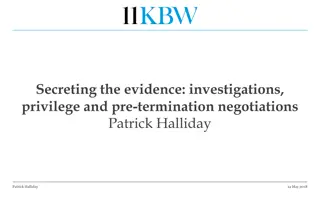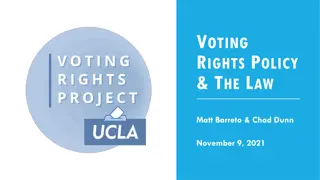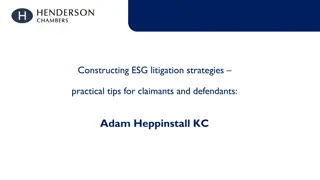International Civil & Commercial Litigation Overview
International Civil & Commercial Litigation involves rules for evaluating conflicts of law, such as choice of law rules, accessory rule, substantive rules, and laws of necessary application. The content also covers general theory, conflict of laws, international jurisdiction of Quebec authorities, prevention of forum shopping, recognition and enforcement of foreign decisions. Quebec courts ensure a just outcome by considering connections to Quebec and preventing forum shopping through measures in the Civil Code of Quebec.
Download Presentation

Please find below an Image/Link to download the presentation.
The content on the website is provided AS IS for your information and personal use only. It may not be sold, licensed, or shared on other websites without obtaining consent from the author.If you encounter any issues during the download, it is possible that the publisher has removed the file from their server.
You are allowed to download the files provided on this website for personal or commercial use, subject to the condition that they are used lawfully. All files are the property of their respective owners.
The content on the website is provided AS IS for your information and personal use only. It may not be sold, licensed, or shared on other websites without obtaining consent from the author.
E N D
Presentation Transcript
Lesson 3: International Civil & Commercial Litigation
Lesson 3A: General Theory and Conflict of Laws There are several important rules for evaluating conflicts of law issues: The choice of law rules allow for the parties to chose the venue of suit. The accessory rule, which provides that, where the majority of a relationship is conducted in or connected to a particular jurisdiction, that jurisdiction should be the site of any litigation stemming from the relationship. Substantive rules, which provide for the application of the rules and laws of the state in which the wrong occurred, even where venue is established elsewhere. Laws of necessary application, which provide that there is an inherent jurisdiction for each court when applying the laws of another state is found necessary for a just outcome to occur.
Lesson 3B: International Jurisdiction of Quebec Authorities The terms of the Civil Code of Quebec contain provisions to ensure that a denial of justice does not occur when Quebec courts decide cases involving conflicts of law. The Civil Code provides that Quebec courts may hear a case where, although they do not have jurisdiction, the matter could not be brought in another forum, provided that there is a sufficient connection to Quebec. The Civil Code allows Quebec courts to institute temporary or preliminary measures even where the court does not have jurisdiction over a case.
Lesson 3B: International Jurisdiction of Quebec Authorities The Civil Code of Quebec also contains measures which seek to prevent forum shopping and the institution of parallel proceedings in multiple jurisdictions. The Civil Code provides that Quebec courts may deny jurisdiction based on forum non-conveniens and a finding that another jurisdiction would be more appropriate. The Civil Code provides that a Quebec court may stay its ruling on an action brought before it if another action, between the same parties, based on the same facts and having the same object is pending before a foreign authority, provided that the latter action can result in a decision which may be recognized in Qu bec, or if such a decision has already been rendered by a foreign authority.
Lesson 3C: Recognition and Enforcement of Foreign Decisions and Jurisdiction of Foreign Authorities In Quebec the general principle is that foreign judgments must be recognized of enforced unless they fail to meet the conditions exhaustively listed in articles 3155 and 3156 C.c.Q.
Lesson 3C: Recognition and Enforcement of Foreign Decisions and Jurisdiction of Foreign Authorities There are several requirements under the Civil Code of Quebec for Quebec courts to recognize foreign judgments. Quebec courts will not recognize a foreign judgment where it believes that it has exclusive jurisdiction. Quebec courts will recognize a foreign judgment where they examine the circumstances of the defendant and the claim and find that foreign jurisdiction was proper. Quebec courts will recognize a foreign judgment where they are satisfied that the judgment is a final judgment. Quebec courts will recognize a foreign judgment where it is not contrary to to procedural or substantive policy. Quebec courts will recognize a foreign judgment where it is not subject to lis pendens or res judicata.
Lesson 3D: Special Rules Under the terms of the Civil Code of Quebec: In order for a personal patrimonial action to be brought in a Quebec court, sufficient contacts between Quebec and the defendant or the claim exist and the parties do not have a prior agreement to submit such a matter to a foreign court for adjudication or arbitration. Where the matter at issue relates to a consumer or employment contract, a Quebec court will have jurisdiction if the consumer or worker is a resident of or domiciled in Quebec.
Lesson 3D: Special Rules The Civil Code of Quebec provides for general rules regarding jurisdiction and procedure for issues involving contracts. For issues involving Consumer Contracts and Contracts of Sale, the Civil Code provides special rules regarding jurisdiction and procedure. The Civil Code also provides general rules for issues involving extra-contractual obligations, as well as special procedures for claims asserting Manufacturer s Liability and Raw Materials.
Lesson 3 Summary In this Lesson, you learned the fundamental interpretive principles involved in conflicts of law questions. You explored the ways in which Quebec courts are allowed to apply foreign judgments and the judicial determinations required before a foreign judgment will be recognized by a Quebec court. You also learned the sufficient contacts requirements necessary in order for a Quebec court to exercise jurisdiction over a claim.
